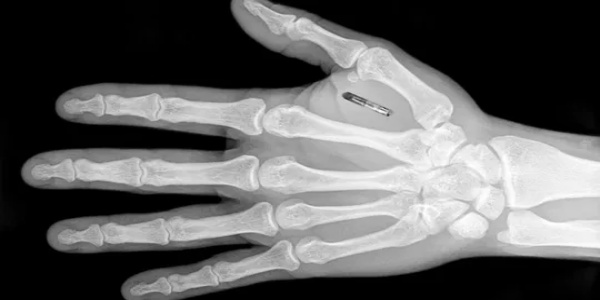Lessons from Sweden about going cashless
The most interesting ones are about the MEANING of money.

Cashless society. Source Wikipedia.
</em></u>
In ten years the proportion of Swedes using cash has fallen from 40 to 9%. Today, Just 1% of Sweden’s GDP circulates as cash, compared to 11% in the Euro zone.
Many shops and cafes in central Stockholm are already cash-free also thanks to Swedes' fondness for splitting the bill in bars and restaurants: “It’s a lot more costly for a merchant or retailer to handle cash payments than card or electronic payments”.
More than 280,000 Swedes, including business owners in rural areas, need to travel over 20 kilometres to reach a cash deposit machine.
That is the more “ordinary” present. But it is already possible to pay by waving your bare hand over a cash register, if you planted a Biohax microhop in it (see below). And Sweden may also be the world’s first country to use a central bank digital currency (CBDC), a topic worth another full post, hopefully soon.
You can read much more about how cashless actually impacts (for better or for worse) Swede’s daily lives at Sweden.se, the Conversation, Wired and also in this Access to Cash report that commented about Sweden’s “dangers of sleepwalking into a cashless society”.
Dark sides

An implanted Biohax chip
</em></u>
Let’s put biochipping off my chest, I mean hands, first: if you ask me, using my body just like I’d use a wallet, that is a container of payment tools, somehow cheapens it. Just like “injecting chips into workers”, just because it is easier than issuing them with a security pass.
Other, more general problems of a completely cashless society are:
- compatibility with senior citizens: “in shops, old people [who pay with cards] do it very slowly”
- robustness:
- being robbed of some cash is awful. Being robbed of credit cards means “being robbed of all the money you have”
- at another level, even Swedish authorities still “advise everyone to keep cash at home in small denominations in case the payment system crashes”
- privacy, as in ““I don’t want the bank to know how much I spend on wine”
- loss of control, especially for poorer people who wold lose the possibility to “prevent their remaining money being eaten by direct debits”. (added on 2020/12/10: on this, read “When algorithms meet debt!)
Going cashless changes the very meaning of money
and this is the most interesting part:
- In Zimbabwe, moves toward cashlessness have been experienced as a disruption of pre-existing forms of economic life, rather than their seamless extension
- in Sweden itself, cashlessness is “forcing the country’s central bank to act in order to stay relevant [least] the general public no longer having access to [or need of] state-issued money”
This is stuff that makes one think, doesn’t it?
Who writes this, why, and how to help
I am Marco Fioretti, tech writer and aspiring polymath doing human-digital research and popularization.
I do it because YOUR civil rights and the quality of YOUR life depend every year more on how software is used AROUND you.
To this end, I have already shared more than a million words on this blog, without any paywall or user tracking, and am sharing the next million through a newsletter, also without any paywall.
The more direct support I get, the more I can continue to inform for free parents, teachers, decision makers, and everybody else who should know more stuff like this. You can support me with paid subscriptions to my newsletter, donations via PayPal (mfioretti@nexaima.net) or LiberaPay, or in any of the other ways listed here.THANKS for your support!